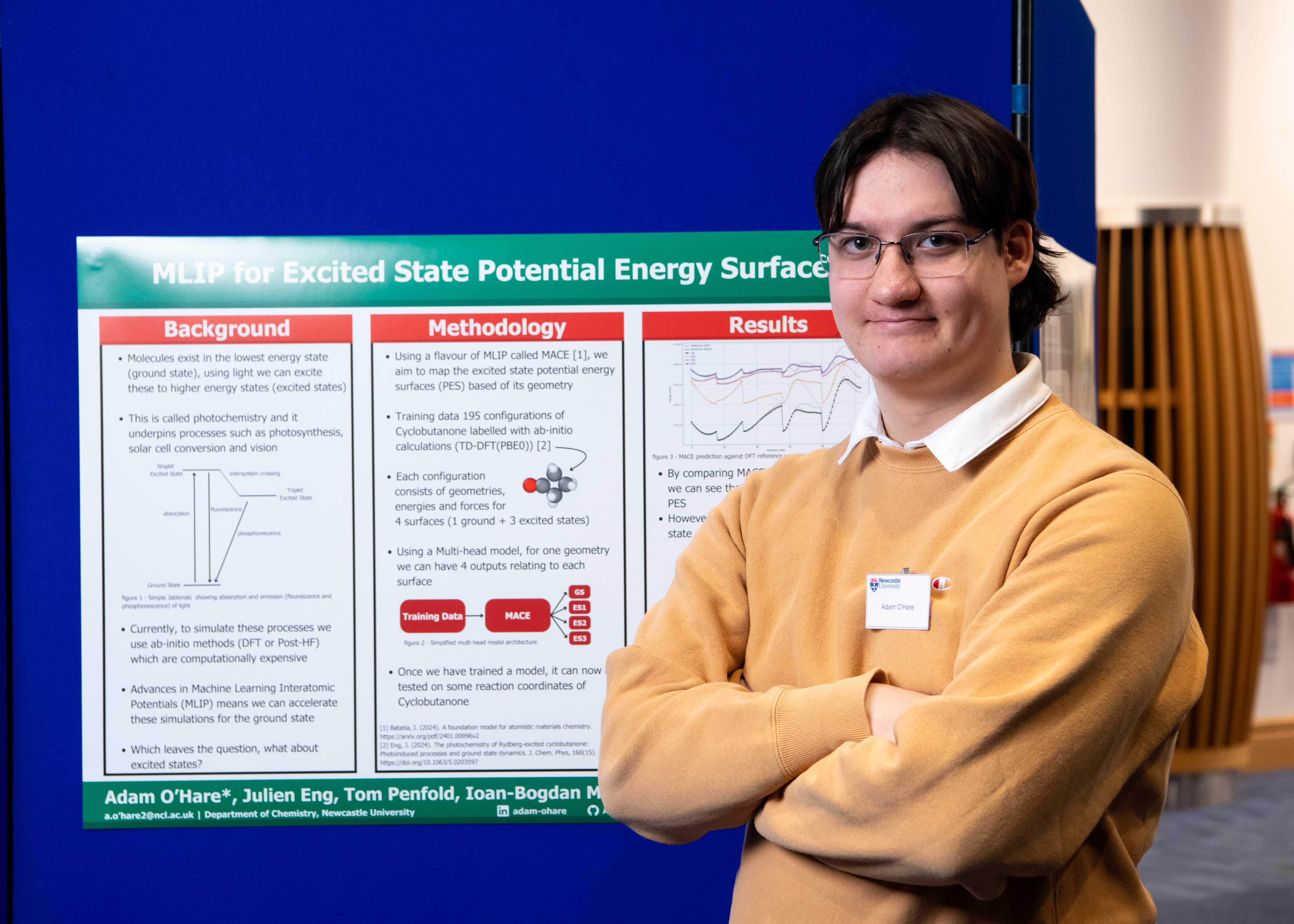Participants
 Adam O'Hare
Adam O'Hare
- Machine Learning Interatomic Potentials for Excited-state Potential Energy Surfaces
- MChem with Hons in Chemistry
Most chemical processes happen in the ground state, the lowest energy level of a system. However, some critically important reactions can only take place when light interacts with molecules and excites their electrons to higher energy states. These excited state reactions can be partially described by quantum dynamics (QD), and are critical to processes like photosynthesis, solar energy conversion, and vision. Simulating these processes is complex and time-consuming. Current methods like Ab Initio Molecular Dynamics (AIMD) are accurate but very computationally expensive.
My research uses machine learning interatomic potentials, a type of artifi cial intelligence where models learn patterns like energies and forces from data labelled with quantum chemistry calculations, to predict the behaviour of these excited states at new molecular geometries. This approach can significantly speed up simulations, reducing the time and cost needed for accurate predictions.
Funded by: Newcastle University Research Scholarship
Project Supervisor: Dr Ioan-Bogdan Magdau
